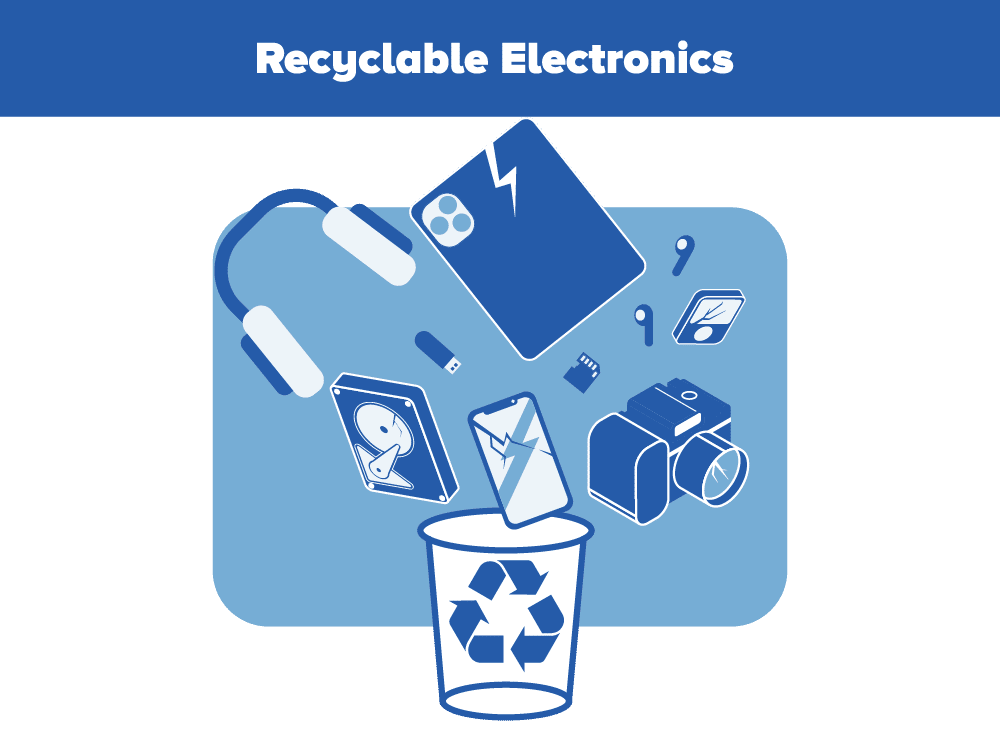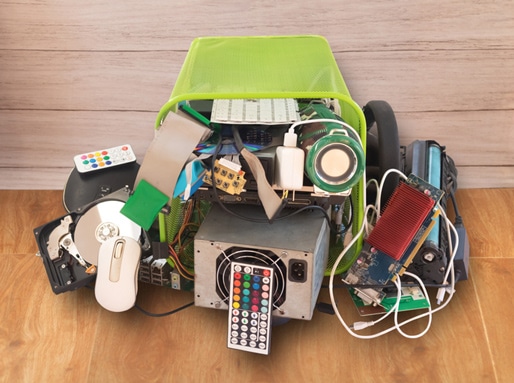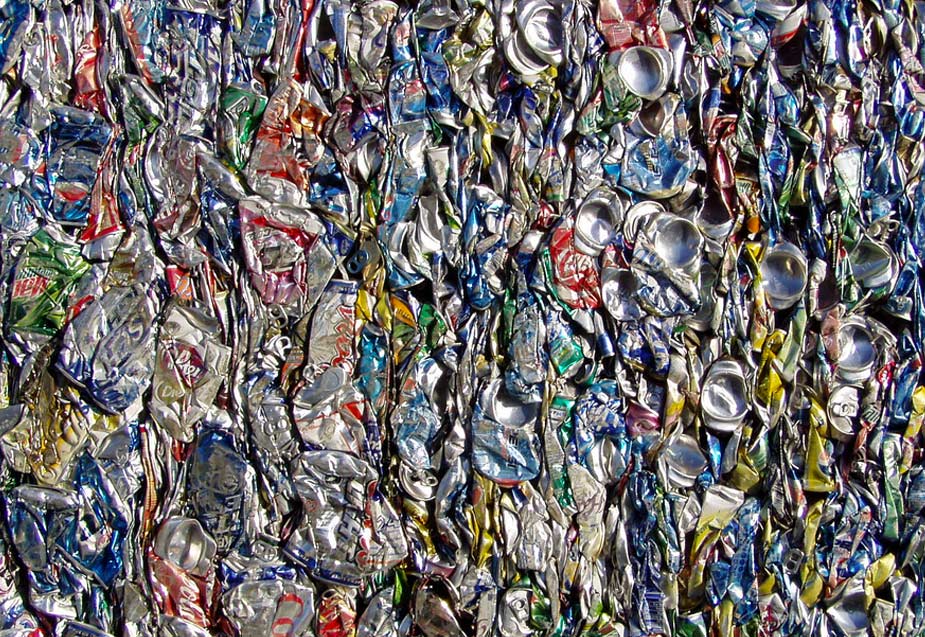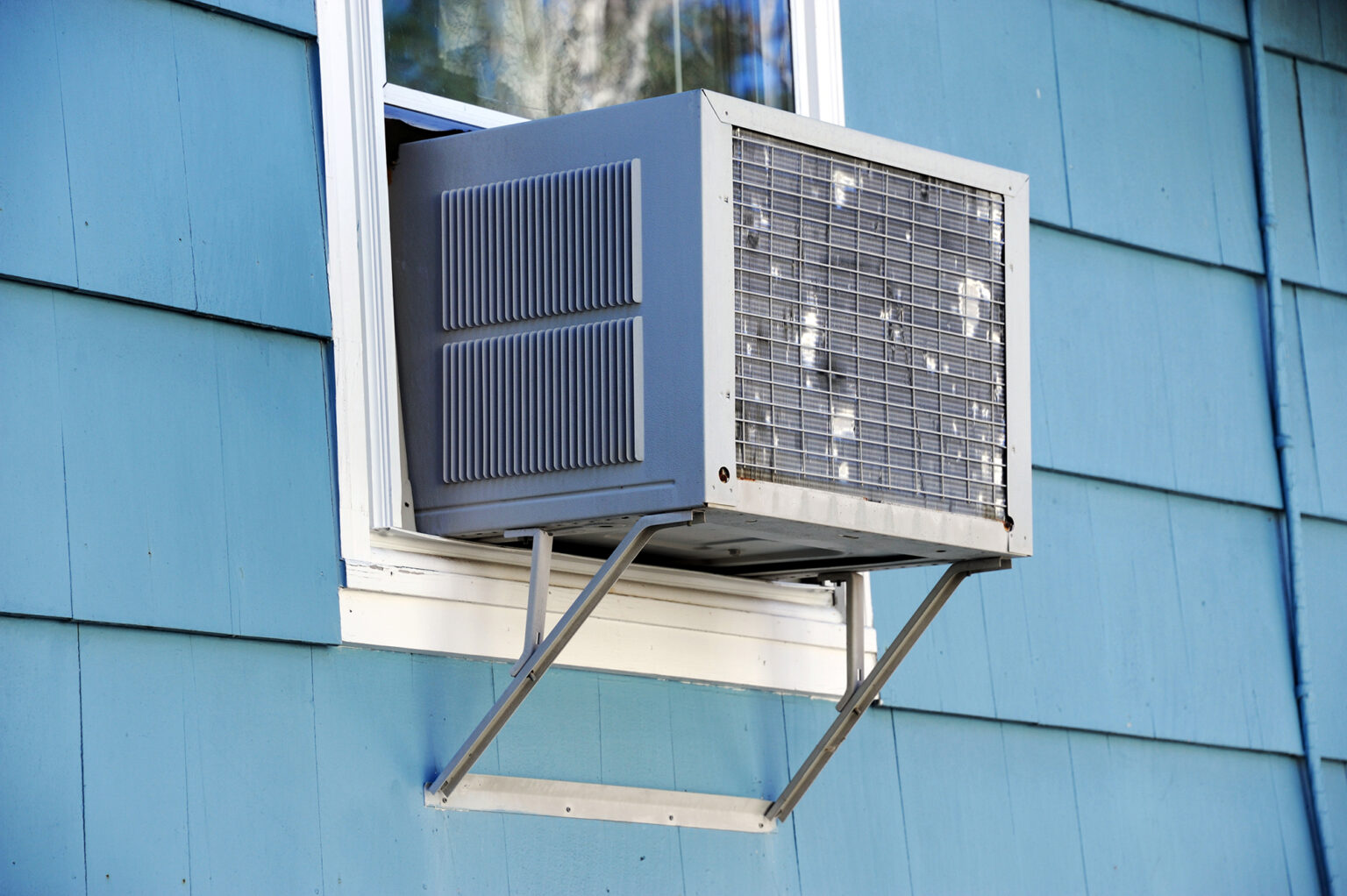Electronics might not be the first thing that jumps to mind when you think of recycling. As a matter of fact, your everyday devices are recyclable electronics. Think about how often you upgrade or replace things like your cell phone, laptop, computer. Now think about all the cables, chargers, and accessories those electronics come with. That adds up to a lot of e-waste!
The longer a device can be used, the better. Reducing e-waste means getting the most life out of our devices while they’re still useful, and once they’re done, recycling what’s left so new devices can be made. Inside your electronics are things like circuit boards, processors, chips, fans, connectors, and of course, the metal, glass and plastic in the body. New devices may be getting smaller and thinner, but the resources it takes to make each new generation of smartphone, tablet, or VR headset are not sustainable without recycling.
But the Environmental Protection Agency estimates that only around 15-20 percent of electronic waste is being recycled. Too much is still ending up in landfills, where those useful resources not only go to waste, but break down and contaminate the surrounding environment. Industry regulators and tech manufacturers are at odds over solutions to the problem. Companies like Sony, Apple and Google are incentivized to focus more on releasing new devices than addressing what consumers do with the old ones.
The power to change this is in your hands – literally. Here are some of the most common electronics to consider recycling once they’re past their useful life, and what to do with them.
Recyclable Electronics That Fit In Your Hand

- Cell phones
- Hard drives and memory cards
- Tablets and e-readers
- Digital cameras
- Chargers and cables
- Music players
- Speakers and headphones
- PDAs
- Wireless and Bluetooth gadgets
- Game controllers and remotes
- Fitness trackers and pedometers
(Hint: If it uses batteries or a charger, it’s recyclable!)
How to Recycle Electronics that Store Data
You can separate most common electronics into two groups: those with an onboard hard drive that stores information, and those that simply use electricity but don’t process data. If you look through the list again, you’ll quickly realize just how much personal data could be sitting around in your old cell phones, tablets, PDAs and hard drives. This might give you second thoughts about recycling your electronics. Is it safe to just hand these devices over?
Yes, but you should look for a certified electronics recycler, or a collection program that works with a certified recycler. Your electronics definitely don’t belong in the bin by the curb with your cans and cardboard! Some businesses and municipalities have electronics recycling collection programs or self-service kiosks that accept certain devices. If you are in Cohen’s region, you can find a recycling center near you and bring in electronics to recycle just as you would any other scrap.
All electronics brought to Cohen are processed by our subsidiary, Cobalt, which is certified by R2 in safe, secure electronics disposal. Complying with R2 certification guarantees that no data survives the recycling process, no matter the device or its condition. All data is shredded and rendered unrecoverable by either digital or physical destruction methods. Cobalt also helps businesses with bulk electronics disposal and certificates of destruction for compliance purposes. (More at trustcobalt.com).
Fees for Recycling Electronics
While it’s true that all electronics have recyclable components, not all of those components are easy to access and recover. Some devices and materials require special handling or must be sent to a third party to prepare them for recycling. Others simply can’t pay for themselves in the value of the scrap they contain. Scrap is priced by weight, and with manufacturers trying to make devices as lightweight as possible, sometimes there’s just not much to salvage. Recyclers may charge fees to cover the costs of processing these items, or accept items for no fee and no payout.
Items Cohen charges for include:
- Televisions and monitors (any kind)
- Batteries (any kind)
- Cell phones (any kind)
- Printers (any kind)
- Plastic-heavy devices with low metal content (for example, mouse, keyboard).
Fees are subject to change and can range from $0.10-60/lb for most items to $2-4/lb for some high-end batteries. Call ahead with questions on fees.
Want to avoid or reduce fees? Look for a public electronics recycling event near you, or ask your local government or places of business to consider hosting one. Often these events will ask for a flat fee to participate rather than pricing out every device, so these events can be a good way to recycle all your electronics at once. Call Cobalt at (513) 422-2530 to learn more about how to put on an electronics recycling event.
Can Broken Electronics Be Recycled? What About Parts?
You can recycle electronics no matter what condition they are in. It just might affect the value. You can also take apart old devices to get to just the most valuable parts. However, don’t expect much reward for your labor unless you bulk up and refurbish a lot of used electronics. A circuit board might be worth more per pound than a whole computer, but you need many computers’ worth of circuit boards to reach your first pound. But if you’ve just replaced a fan or a processor, for example, then by all means, the old one can go with the rest of your recyclable devices.
Should I Donate, Sell or Recycle My Old Electronics?
Recycling is just one way of parting with devices you no longer need. If your electronics are still serviceable and not so old that they’re obsolete, you might consider selling or donating them to someone else who could still use them. This is a sustainable solution for gadgets that you upgrade long before the old model is truly out of service. Devices that are only a few generations old are typically still valuable and in demand with organizations that help distribute these goods to people in need.
Recycling is the right choice for electronics that have a lot of wear and tear – more than anyone would care to repair. Some devices have just fallen out of fashion as smart phones and watches came to inhabit the place in our lives that cameras and music players used to. You might have a hard time finding takers for those items on the secondhand market.
Ready to Recycle Electronics?
Recycling your old devices is one of the easiest ways to contribute to a more circular and sustainable economy. Find a Cohen location near you and read our First Timer’s Guide to get oriented before you go.




